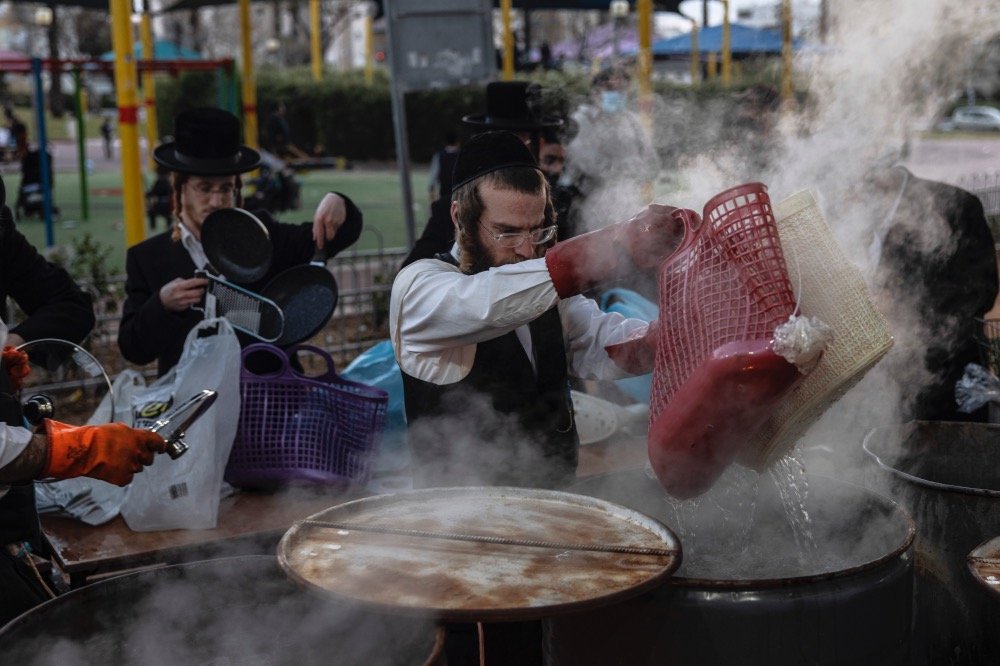A year ago, Giordana Grego’s parents spent Passover at home in Israel, alone but grateful that they had escaped the worst of the pandemic in Italy. This year, the whole family will get together to mark the Jewish feast of liberation and deliverance from the pandemic.
Israel has vaccinated over half its population of 9.3 million, and as coronavirus infections have plummeted, authorities have allowed restaurants, hotels, museums and theaters to re-open. Up to 20 people can now gather indoors.
It’s a stark turnaround from last year, when Israel was in the first of three nationwide lockdowns, with businesses shuttered, checkpoints set up on empty roads and people confined to their homes. Many could only see their elderly relatives on video calls.
“For us in Israel, really celebrating the festivity of freedom definitely has a whole different meaning this year after what we experienced,” said Grego, who immigrated to Israel from Italy. “It’s amazing that this year we’re able to celebrate together, also considering that in Italy, everybody is still under lockdown.”
Passover is the Jewish holiday celebrating the Biblical Israelites’ liberation from slavery in Egypt after a series of divine plagues. The week-long springtime festival starts Saturday night with the highly ritualised Seder meal, when the Exodus story is retold. It’s a Thanksgiving-like atmosphere with family, friends, feasting and four cups of wine.
Throughout the week, observant Jews abstain from the consumption of bread and other leavened foods to commemorate the hardships of the flight from Egypt. Instead, they eat unleavened matzah.
Holiday preparations involve spring cleaning to the extreme to remove even the tiniest crumbs of leavened bread from homes and offices. Cauldrons of boiling water are set up on street corners to boil kitchenware, and many burn their discarded bread, known as chametz. Supermarkets cordon off aisles with leavened goods, wrapping shelves in black plastic.
Read the article by Ilan Ben Zion in Sight Magazine.

